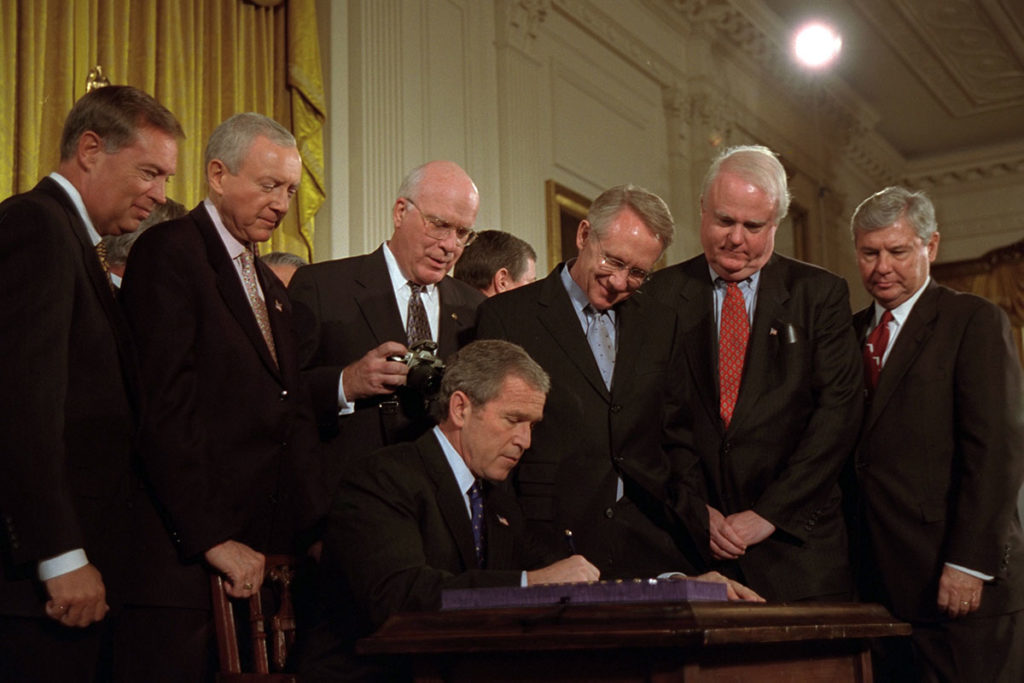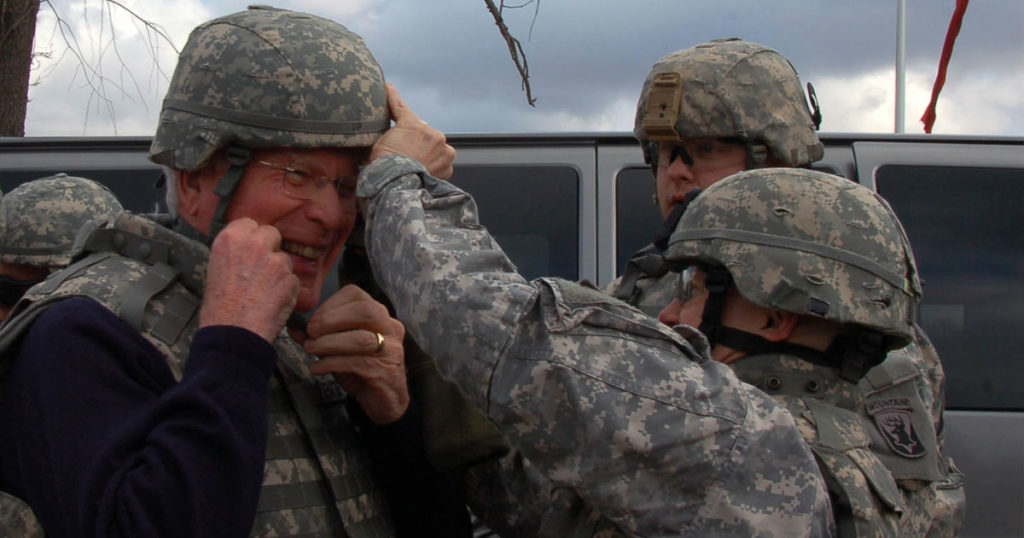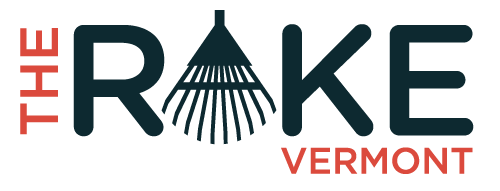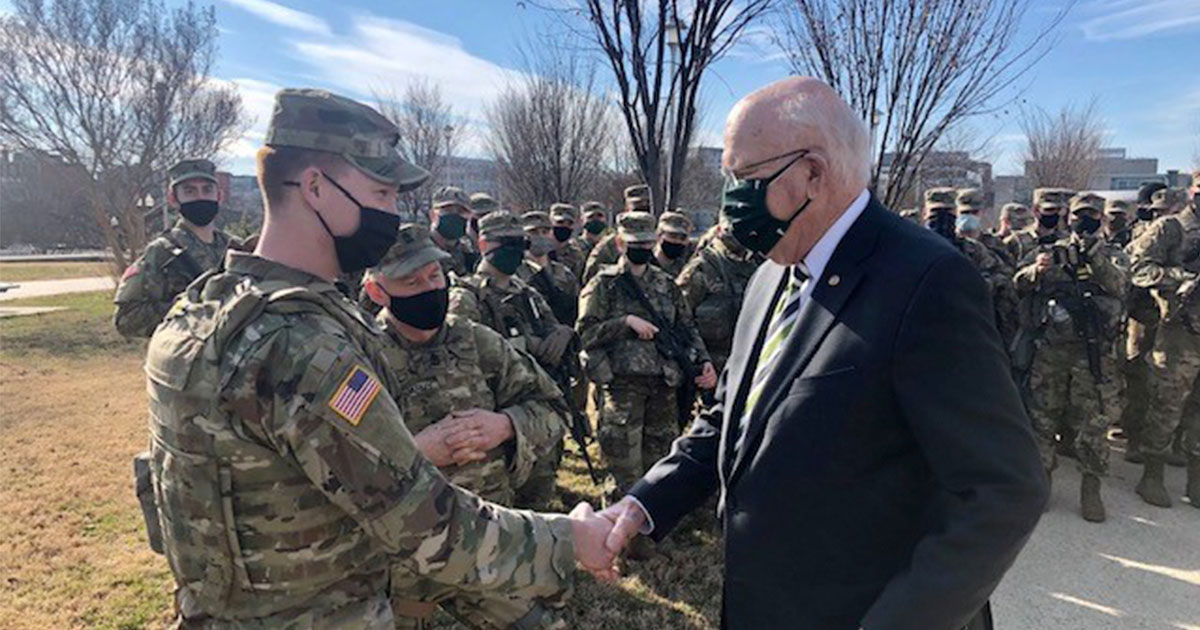Senator Patrick Leahy’s announcement that he would not seek re-election in 2022 has unsurprisingly led to plenty of media attention on his career, which spanned six decades. Litigating a politician’s legacy is always en vogue, and recently both the Burlington Free Press and The Intercept took to praising Leahy’s human rights record. Despite some meaningful stances regarding global human rights, both pieces omit the senator’s actions in expanding the national security state and U.S. global military hegemony.
Mass Incarceration and Surveillance at Home

Domestically, Leahy was a cheerleader in pivotal moments for the curtailment of freedom and the expansion of the carceral state. Leahy voted for the notorious 1994 Crime Bill, which accelerated mass incarceration in the United States. He was an original author and sponsor of the USA PATRIOT Act of 2001 in the wake of the 9/11 attacks. In the years that followed, he would make objections to selected provisions of the Patriot Act while also introducing its reauthorization. Leahy’s main objection was to Section 215 of the act, which allowed for the ability of the government to gain access to “any tangible thing” during investigations, and to the “lone wolf” provision, which allowed for surveillance of non-U.S. persons who are not associated with terrorist groups. Section 215 sunset in 2020 only because federal lawmakers couldn’t reach an agreement on reforms to the Foreign Intelligence Surveillance Act.
In 2015, Leahy would introduce and pass the USA FREEDOM Act of 2015 which aimed to thwart bulk collection of data and other aspects of the original act after Edward Snowden’s revelations in 2013. In reality, these were minuscule reforms that only apply to parts of domestic surveillance: mass spying continues unimpeded abroad. Globally, the surveillance of other persons and nations continues, infringing on human rights.

Leahy led the charge to station F-35 fighter jets at the Vermont Air National Guard base in South Burlington. The F-35s are widely reviled by residents in its flight path, and the noise pollution they generate actively harm Leahy’s constituents. In 2019, Leahy’s staff called police to arrest three of his constituents conducting a peaceful sit-in to protest F-35s at his Burlington office.
Mass Death and Regime Change Abroad

While he opposed the 2003 Iraq War, Senator Leahy is no dove. He voted to authorize bombing Serbia and Montenegro in 1999 and the invasion of Afghanistan in 2001.
The Leahy Law, passed in 1997, is intended to ban the U.S. government from militarily supporting or assisting nations that have been found to commit human rights violations. In theory, it seems nice, but loopholes have allowed the United States to continue supporting nations that commit human rights violations abroad. Some examples include:
- In Colombia in the late 1990s and early 2000s, the U.S. supported the right-wing government through “anti-narcotics” initiatives, only to see them used to fight leftists and extend the country’s bloody civil war.
- In Afghanistan, the Pentagon kept U.S. forces from reporting physical abuse and assault of children by Afghan security and police forces so it could continue its military presence in the country.
- The continued human rights abuses and occupation of Palestine by Israel has been called a direct violation of the Leahy Law. As for Leahy’s position on the matter, he maintains a traditional liberal “complex issue” and “both sides” stance, while offering some light condemnation without going so far as to call for the application of his namesake’s law.
Then there’s the matter of the Leahy War Victims Fund, which was established in 1989 and has donated hundreds of millions of dollars since its inception. The fund isn’t suspect because of its intent, but because, as noted by The Burlington Free Press, USAID uses it. USAID has been utilized by the CIA as a front organization to train police and military forces in the Global South, Asia, and Africa to orchestrate coups, put down leftist revolutions, persecute domestic dissent, and teach torture practices. In recent years, USAID has involved itself in Cuba, where it created a social media service and infiltrated the Cuban hip-hop scene hoping to trigger dissent in the nation. Former Bolivian President Evo Morales (later exiled and since returned after a US-backed coup of its democratically-elected government) expelled USAID from the nation for undermining the Bolivian government.
For his part, once the Cuban social media program came to light Leahy condemned the actions on television and during congressional hearings. But he did not withdraw the Leahy War Victims Fund from USAID stewardship. Despite his past statements against the U.S. funding of right-wing human rights abusers in Nicaragua and El Salvador and sponsorship of ending the trade embargo with Cuba, Leahy still maintains anti-communist and anti-Cuba viewpoints. Leahy did not comment on the 2021 online misinformation campaign regarding protests in Cuba.
Before we give uncritical deference to Leahy at the close of his nearly half-century senatorial career, let’s remember: Patrick Leahy has been a fixture in the U.S. government during times of increasing inequality, militarism, imperialism, and human rights abuses, and his “human rights legacy” carries these stains at home and abroad.

Matt Moore is a writer from Vermont. He is on the editorial collective of The Rake Vermont.



